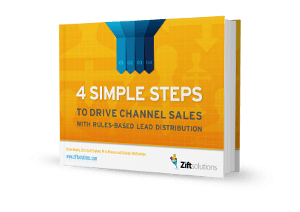Channel Marketer Report recently asked me to share my thoughts on how channel marketing will shift or evolve in 2014. As I formulated my response, I found one emerging trend to be particularly significant: Today’s businesses are increasingly utilizing cloud-based services and Software as a Service (SaaS), creating both opportunities and challenges for the channel. Seventy-one percent of participants in a recent Gartner survey indicated that their businesses had embraced SaaS. Forrester Research projects the SaaS market to total $75B in 2014. A separate August 2013 Gartner report noted that the use of cloud services is growing faster than the overall enterprise IT market with 80 percent of organizations surveyed indicating that they intend to use cloud services in some form within the next 12 months.
How Have Channel Partners Reacted?
Due to the ongoing delivery structure of cloud services and SaaS, suppliers can secure long-term revenue streams and improve customer choice while expanding their portfolios with SaaS and cloud services. Yet, despite the growing market for both cloud and SaaS, many channel partners are resistant to selling these services. Why? According to Cloud Industry Forum, many feel that the market is not ready to embrace cloud services, with 53% of survey respondents citing security concerns, 44% a lack of market understanding, 42% customer desires for on-premise infrastructure, solutions and delivery and 33% indicating that there is too much to lose if cloud isn’t successful. Many channel partners worry about cannibalization of existing revenue, lower sales values and vendors creating a direct relationship with their customers.
They often have deep concerns regarding compensation, billing and margins along with increased competition from cloud resellers, vendors and XSPs. Moreover, cloud and SaaS require a higher-velocity, more direct approach to sales, which means that channel marketers and sales reps must be more active and engaged with prospects in order to close more business. In fact, a recent cloud computing survey conducted by Dell and Techaisle showed the 69% of SMBs prefer to procure their SaaS applications from a single trusted integration specialist or vendor.
How Can Suppliers Help Channel Partners Overcome These Barriers?
To overcome these barriers, channel partners require more support from suppliers as they shift from selling traditional on-premise solutions to subscription-based SaaS and cloud services. Suppliers must ease compensation concerns as they transition partners to SaaS and cloud with clear communication and even incentives. For example, VMware has offered cloud credits to help VARs transition their businesses and other suppliers are sure to follow suit. Suppliers should help their channel partners extend their ‘trusted advisor’ status into the cloud with more education, including training and certifications covering new products, business models and sales techniques. Educating and helping channel partners refine their sales techniques to present themselves as business consultants will ensure they are better positioned to take advantage of the upswing in cloud and SaaS.
What other plans do you have for 2014 to help your channel partners succeed? Let us know in the comments section below.

4 Simple Steps to Drive Channel Sales with Rules-Based Lead Distribution
Find out how you can transform lead distribution and empower channel partner success with this insightful eBook!
Ken Romley
Ken is a driving force behind Zift’s strategic vision and mission to offer channel marketing automation solutions to help global brands drive channel revenue. Ken has co-founded and run a wide range of technology and Internet-based enterprises while leading innovations in marketing technologies.



